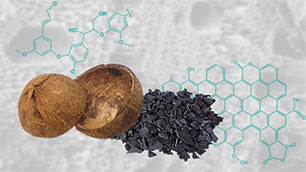


The Advantages of Coconut Shell Charcoal as an Alternative Fuel
Coconut shell charcoal is gaining attention as a highly sustainable and efficient alternative fuel. Derived from the shells of coconuts, it provides an excellent solution for energy production while promoting environmental sustainability. By using a coconut shell charcoal machine, manufacturers can efficiently convert waste coconut shells into high-value fuel, offering both economic and ecological benefits.
Coconut shell charcoal is a renewable resource made from the byproducts of coconut production. As coconut farming is widespread, the shells are readily available and can be repurposed rather than being discarded as waste. This reduces landfill use and minimizes the environmental impact associated with coconut cultivation.
The production process, which typically involves a coconut shell charcoal machine, uses controlled carbonization techniques to create a product with minimal emissions. Compared to traditional fuels, coconut shell charcoal has a lower carbon footprint, making it an environmentally friendly option. The process helps reduce waste while offering a sustainable alternative to fossil fuels.
Coconut shell charcoal boasts a high energy density, which makes it a highly efficient fuel. It has a calorific value higher than traditional wood charcoal, meaning it burns hotter and longer, producing more energy per unit of weight. This high energy output makes it an excellent choice for applications requiring sustained heat, such as cooking, heating, and industrial processes.

Because of its compact nature and potent energy release, coconut shell charcoal also reduces transportation costs and storage needs. Less fuel is required to generate the same amount of energy as traditional fuels, making it both cost-effective and efficient.
Coconut shell charcoal is versatile and can be used in numerous industries. It is commonly used in metal smelting, ceramics, and brick-making, where high-temperature combustion is essential. The charcoal’s ability to provide steady heat at high temperatures makes it valuable in these energy-intensive applications.
Another significant use for coconut shell charcoal is in the production of activated carbon, a highly sought-after material used in water and air purification systems, as well as in food and beverage filtration. This added value increases the overall marketability of coconut shell charcoal and further enhances the economic benefits of its production.
One of the key advantages of coconut shell charcoal is its clean combustion. When burned, it releases significantly lower levels of pollutants such as sulfur, nitrogen oxides, and particulate matter compared to fossil fuels like coal or oil. This makes it a safer and more environmentally friendly alternative for both indoor and outdoor use.
The high carbon content of coconut shell charcoal ensures efficient combustion, with little residual ash or toxic emissions. Using this fuel helps reduce air pollution and the associated health risks, contributing to cleaner air quality in communities that rely on charcoal for cooking and heating.
The production of coconut shell charcoal is often more affordable than other fuel sources. Coconut shells, which are the raw material for the charcoal, are inexpensive and abundant, particularly in tropical regions where coconuts are grown in large quantities. Using a coconut shell charcoal making machine for sale allows for efficient processing of these shells, turning waste into a valuable commodity.
Moreover, the production of coconut shell charcoal can create economic opportunities in rural areas. This decentralized model of production provides jobs and boosts local economies, helping communities move toward more sustainable energy solutions while reducing dependency on expensive imported fuels.
Coconut shell charcoal is a sustainable, efficient, and cost-effective alternative fuel source with numerous benefits. Its high energy density, clean combustion, and versatility make it suitable for a wide range of applications, from cooking and heating to industrial energy generation. By using a coconut shell charcoal machine, producers can turn waste coconut shells into a valuable resource, helping reduce environmental impact while offering a renewable fuel option. As demand for alternative energy sources continues to rise, coconut shell charcoal stands out as a promising solution for reducing carbon footprints and fostering a circular economy.
